University of California San Francisco
Give to UCSF-
-
Two UCSF Faculty Among 100 Leading Global Thinkers Honored by Foreign Policy Magazine
Two UCSF faculty members – a microbiologist who studies the genesis of asthma and a surgeon who helped lift the ban on organ transplants between HIV-positive donors and recipients – are among this year’s 100 Leading Global Thinkers selected by Foreign Policy magazine.

-
Pubic Hair Grooming Linked to Sexually Transmitted Infections
A national survey has found an association between pubic hair grooming and sexually transmitted infections.
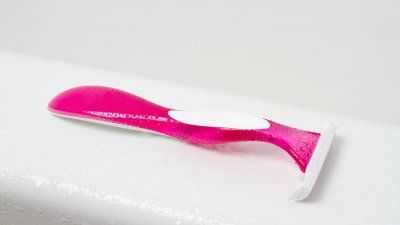
-
Researchers Use CRISPR to Accelerate Search for HIV Cure
Researchers at UCSF and the academically affiliated Gladstone Institutes have used a newly developed gene-editing system to find gene mutations that make human immune cells resistant to HIV infection.

-
HIV Active in Tissues of Patients Who Received Antiretroviral Treatment, Study Shows
UCSF researchers found in autopsy tissue samples of patients treated with antiretrovirals that the virus evolved and migrated among tissues similar to the way it did in patients who had never received antiretroviral treatment.
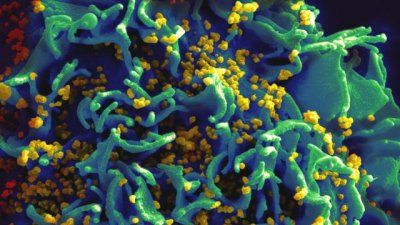
-
UCSF Center for AIDS Prevention Awarded $8.5M From National Institute of Mental Health

-
UCSF at Dreamforce 2016: Watch the Highlights
Watch the highlights from some of UCSF's foremost scientists who participated in the Dreamforce conference this year.

-
UCSF Tops All Fundraising Teams for AIDS Walk San Francisco 2016
Craig Miller, founder and senior organizer of AIDS Walk San Francisco, joined UCSF Chancellor Sam Hawgood and others at a reception to congratulate the UCSF community for raising $170,000 to support HIV-related programs and services.
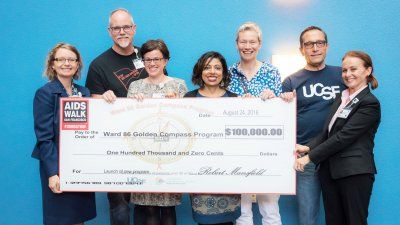
-
UCSF Shows Up Big for AIDS Walk’s 30th Anniversary
Hundreds of staff, faculty, students and supporters of UCSF braved a blustery morning in Golden Gate Park to participate in AIDS Walk San Francisco’s 30th anniversary.
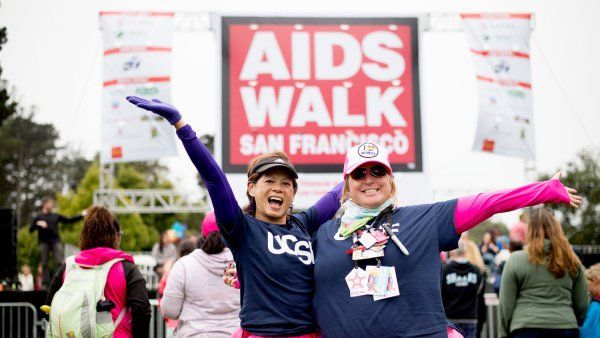
-
Countdown to a Cure: The Effort to Finally Defeat AIDS
Spurred by three decades of momentum and fresh funding, UCSF scientists mount a major effort to finally defeat AIDS.
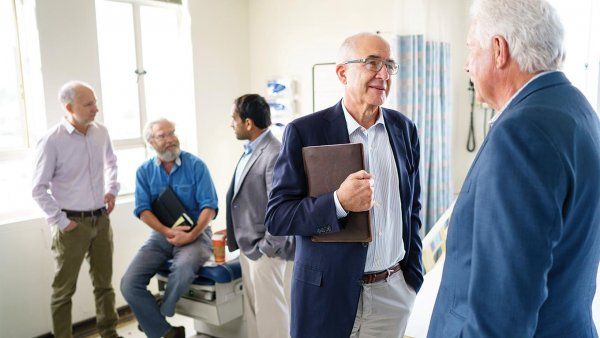
-
JoAnne Keatley: Championing Equity in Care for the Transgender Community
JoAnne Keatley has spent her career at UCSF opening doors to ensure trans people seeking health services get the care they need that best suits their gender identity.
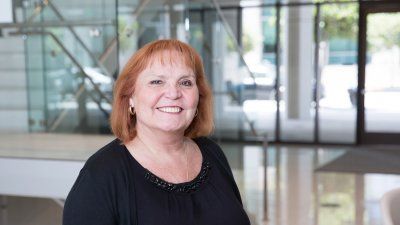
-
UCSF Aims to Raise $200K in 30th Anniversary of AIDS Walk San Francisco
UCSF aims to step up its game during the 30th anniversary of the AIDS Walk San Francisco and raise $200,000 in donations for programs and services.
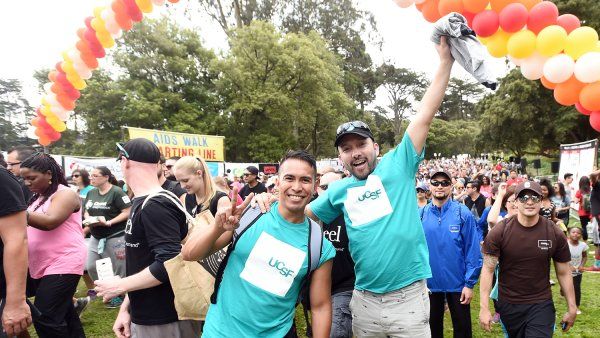
-
Neurologic Symptoms Common in Early HIV Infection
A team led by researchers from UCSF and Yale has found that half of people newly infected with HIV experience neurologic issues.

-
Addressing Trauma as a Health Risk
Clinicians at UCSF are taking on trauma as more than just a social issue. They are addressing how it has a staggering impact on a person’s health.
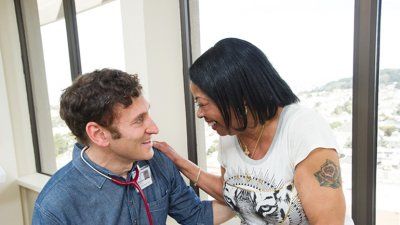
-
Women's Health Research Program Names 2 New Scholars at UCSF
Corinne Rocca, PhD, MPH, and Catherine Koss, MD, have been appointed to a UCSF Bixby Center and Kaiser Division of Research program to develop new researchers focused on topics unique to women’s health.

-
UCSF Global Food Initiative Fellows Tackle Food Insecurity’s Impact on Infectious Diseases
Three UCSF research fellows are exploring the role food insecurity plays in poor health related to infectious diseases, as part of the University of California Global Food Initiative.

-
Big Ideas in Health and Science for 2016
We asked experts across UCSF to identify what's ahead in how we approach research, what disease areas will see major advances, and where basic science will be translating into real treatments.

-
UCSF Will Lead Research for AIDS Cure Within 5 Years
-
Mexico City Honors UCSF's Jaime Sepulveda for Pivotal Role in HIV/AIDS Prevention
To mark World AIDS Day, the government of Mexico City held a ribbon-cutting ceremony for a new HIV/AIDS clinic and named it for Jaime Sepulveda, MD, DSc, MPH, executive director of UCSF Global Health Sciences.

-
Curing AIDS: New San Francisco-Based Institute Gets $20 Million
-
How an Approach Called ‘Shock and Kill’ Could Cure HIV
HIV can lurk for a lifetime in the body, so to truly cure patients, scientists are trying to find ways to target these HIV reservoirs in a strategy known as “shock and kill.”

-
$20M Grant from amfAR Funds Institute for HIV Cure Research
In a bid to end the worst epidemic in modern times, the Foundation for AIDS Research (amfAR) is funding an ambitious effort based in San Francisco to eliminate the human immunodeficiency virus (HIV) from those who are infected.

-
New Look at PrEP Study Points to Efficacy for Transgender Women
In a new look at the groundbreaking iPrEx trial for people at high risk of HIV infection, UCSF researchers have identified strong evidence of efficacy for transgender women when PrEP is used consistently.

-
Final Tally Is In: UCSF Surpasses Goals to be Top Fundraiser in AIDS Walk SF 2015
UCSF teams raised nearly $130,000 at AIDS Walk San Francisco 2015, surpassing the University's records and making it the city’s top fundraiser.

-
Agricultural Intervention Improves HIV Outcomes
A multifaceted farming intervention can reduce food insecurity while improving HIV outcomes in patients in Kenya, according to a randomized, controlled trial led by researchers at UCSF.

-
UCSF Tops $100K in Fundraising for AIDS Walk 2015
Thanks to individuals like DK Haas and Robert Mansfield, UCSF teams have raised more than $100,000 in AIDS Walk 2015, holding position as one of the city’s top fundraisers.
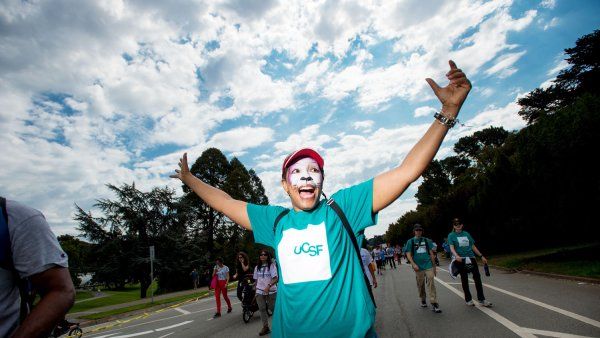
-
In CRISPR Advance, Scientists Successfully Edit Human T Cells
In a project spearheaded by investigators at UCSF, scientists have devised a new strategy to precisely modify human T cells using the genome-editing system known as CRISPR/Cas9.

-
UCSF Warms Up for AIDS Walk San Francisco 2015
Teams rally for the annual AIDS Walk event on July 19.

-
David Robb: Researching treatment solutions for HIV/AIDS
At the height of the AIDS epidemic, David Robb made a career change from being a film student and San Francisco restaurant employee to working in non-profit and research for HIV/AIDS.

-
UCSF Moves Forward with Plans for New General Hospital Research Facility
Research is a key component of UCSF's work at San Francisco General Hospital, and a new proposed research facility will support breakthroughs there for decades to come.
